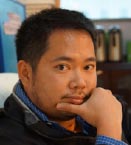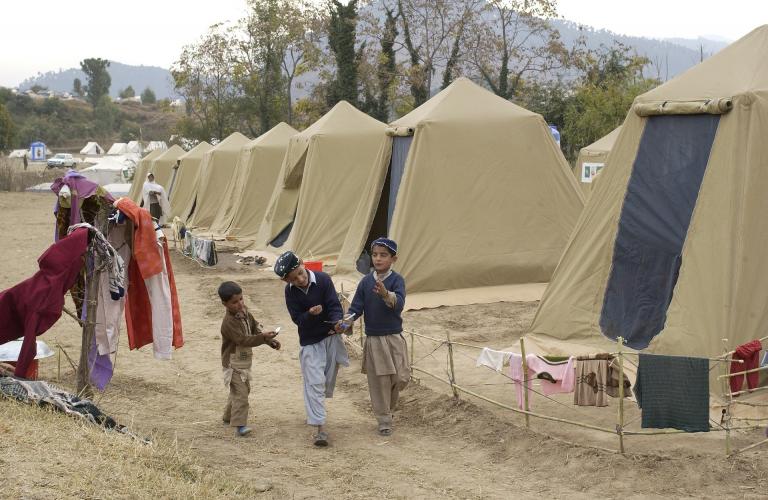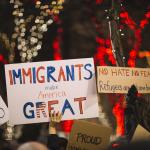Guest post by Vy Nguyen
Executive Director of Week of Compassion
One day a year, every year, on June 20, communities around the world host World Refugee Day to draw attention to the millions of refugees and internally displaced persons worldwide who have been forced to flee their homes because of war, conflict and persecution. It is a day to bear witness to the global refugee crisis and to speak out for global change both in governments and in civic support of refugees.

I recently heard something from a refugee: once you have made the transition from asking, “When are we eating?” to “When are they feeding us?”, you know you are a refugee. This still tugs at me each day when I think about the current refugee crisis.
When refugees are forced to flee violence, they not only lose their homes, they also lose a part of their identity, and often, much of their agency. The world puts on a new label: “refugee.” That label means limited choices, often with no good options.
For the 66 million refugees currently living around the world in places other than their homes, “refugee” will be their status for the rest of their lives. It will trap them in places that are not their homes or cultures, and will not offer them a place or sense of direction about where to go next.
The refugee crisis is as important now as it has ever been; the number of refugees continues to grow and many of the places refugees run towards have begun to shut their doors. Lives are at stake, and this issue is not going away. The choices of places they can go are more limited now than ever. Something needs to happen.
The conflict in Syria is getting worse, with thousands of innocent people continuing to die as a result of the civil war.
The death toll from the ongoing conflicts in Nicaragua, Honduras, Mexico and other Central American countries EACH have surpassed that of Syria. Let that sink in for a moment. For these individuals, staying might mean that they and their children could die; but fleeing for safety, if they make it to the United States, now also means their children could get taken away from them.
I recently met a refugee, whom I will call Ellen for the purpose of sharing her story without violating her privacy. Ellen is a beautiful, vibrant young woman who at first glance does not seem so different from you or me. But her story reveals, like many refugee stories, just how much she has endured.
Ellen currently lives in a camp with thousands of other young Yazidis girls and women in Northern Iraq. She and others have been living in this camp for several years, with no place to go. With her village destroyed, her options are limited.
As we sat in a cool tent in the hot desert camp, she shared that she was kidnapped by ISIS at the age of 13 and forced into sexual slavery. She eventually escaped and found sanctuary in the camp where she now lives. Although military guards protected the campground, her trauma still holds her in bondage. She has lost most of her family, her village and her community – all are gone. Ellen is only 16, but her trauma has aged her beyond her years.

Violence. Persecution. Running away.
Like many refugees, all she wants is to escape violence and live in safety.
This is just one story out of countless refugee stories from Syria, Iraq, Myanmar, Nicaragua, Honduras and many more countries — stories filled with pain and trauma that are never shared in the mainstream media.
We need to hear the many voices of those who are seeking refuge.
Let’s be honest with ourselves. Most of the conversations today around refugees have been hijacked, and the refugees themselves no longer have a voice.
Like so much else in our world, refugees, part of our human fabric, have been broken down to mere statistics.
In many parts of the world, not just in the United States, refugees have been framed as bad people or people who are trying to take advantage of the systems and benefits perceived as “ours,” whatever that means.
What is so troubling about all of this is that somehow we have become — or are starting to become — numb to this. The world has not done enough to ensure that refugees’ voices — their experiences, families and lives — are louder than the statistics. We have not done enough to ensure that refugees’ voices, stories and humanity drive concerted efforts to challenge and dismantle the inaccurate narratives that portray them negatively.
We have not done enough to make sure that people understand that lives are at stake.
As a former refugee, and someone who now leads a national church ministry that works with and supports refugees, let me just say that this notion of refugees being anything other than human beings trying to find a life away from fear and distraction is misguided, and wrong.
As someone who encounters displaced families on a daily basis, I can tell you that refugees are people. Refugees are women, girls, men, boys. Refugees happen to experience violence and persecution in their homeland. Violence. And persecution. Let that sink in for a second.
Refugees are seeking to run from the wars that have robbed them of their homes, of their ancestral lands, of their own way of living and their culture. They should not also lose their humanity. We should not rob them of that by remaining silent when the anti-refugee narrative is spun. We should hear their stories and see their humanity.
As Christians, we are called to listen with compassion to these tales of despair and to advocate for a new narrative — for change.
On World Refugee Day, please join me in remembering the daily struggle experienced by millions of refugees. But, just as at Table every week when we gather, remembering is just the beginning of the work being done. Next comes action. So remember, and then act. Act by speaking out for refugees’ safety, by hearing their stories, by advocating with and for them. Because millions are asking the world, “When will you feed us?”
Vy Nguyen is an ordained minister in the Christian Church (Disciples of Christ) and currently serves as the executive director for Week of Compassion, the relief, refugee and sustainable development ministry of the Christian Church (Disciples of Christ). He is based in the San Francisco Bay Area, where he is regularly in search of good Vietnamese Pho and Texas BBQ to pair with some of his favorite local red wines.
















